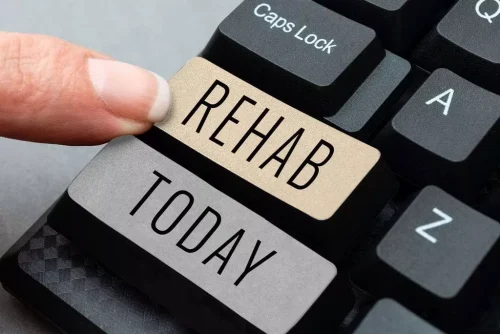
Alcohol is a toxic substance that can damage the body’s organs and tissues. There are mixed conclusions about whether or not alcohol causes kidney failure specifically. Baseline characteristics of 5729 participants according to groups defined by baseline alcohol consumption. Some wines and beers pose potential problems around the amount of potassium they contain.

What are the signs of kidney damage from alcohol?
This might mean eating a healthy diet, staying hydrated, exercising, quitting smoking, and limiting alcohol consumption. For most people, simply scaling back drinks to one or two a week is enough to dodge this particular bullet. For many others, especially those who are struggling with alcoholism or who have a history of alcoholism in the family, a complete ban on alcohol might be the safest option. Having more than three drinks in a day (or more than seven per week) for women, and more than four drinks in a day (or more than 14 per week) for men, is considered "heavy" drinking.
- You may experience flank pain and pain or difficulty during urination.
- By promoting liver disease, chronic drinking has further detrimental effects on the kidneys, including impaired sodium and fluid handling and even acute kidney failure.
- Indeed, liver transplantation is one of two options available today for treating hepatorenal syndrome.
- Simply lacking an adequate amount of phosphate in the diet is one possible reason for phosphate deficiency.
Can You Drink Alcohol with Chronic Kidney Disease?
Interestingly, age makes a difference in how rapidly the body escapes alcohol’s ADH-suppressive effect. People older than age 50 overcome suppression of ADH more quickly than their younger counterparts do, despite reaching similar serum electrolyte concentrations after alcohol consumption. In older people, ADH levels sharply increase following alcohol intake, perhaps in part because sensitivity to increased electrolyte concentration is enhanced with age.

Know Your Kidneys - Identify and reach your kidney health goals.

People who maintain this kind of drinking habit are at double the risk for developing kidney disease compared to the general population, including moderate drinkers. Binge drinking (usually more than four to five drinks within two hours) can raise a person's blood alcohol to dangerous alcohol and kidneys levels. This can cause a sudden drop in kidney function known as "acute kidney injury." When this happens, dialysis is needed until a person's kidney function returns to normal. Acute kidney injury usually goes away in time, but in some cases, it can lead to lasting kidney damage.
- It is the body’s way of warning of a potentially serious medical condition, so it is best not to ignore it.
- In addition, Iwatsuki and colleagues (1973) and Gonwa and Wilkinson (1996) documented the return of normal kidney function in hepatorenal syndrome patients who receive liver transplants.
- Healthy kidneys are vital to the function of all the body’s organs and systems.
- However, 2012 research suggests your risk of developing kidney cancer may be lower if you consume alcohol.
- The authors are indebted to Dr. George Kunos, NIAAA Scientific Director, for his ongoing support and critical reading of the manuscript.
In the univariable Cox model, it may not meet the proportional hazard assumption. Not only the univariable analysis, but also the non-proportionality, may affect the multivariable model. The association between increased blood pressure and alcohol consumption has been recognized at least since 1915, when Lian reported the prevalence of high blood pressure (i.e., hypertension) in relation to the drinking habits of French army officers. Alcoholic patients also may develop low blood levels of phosphate by excreting too much of this ion into their urine. Typically, chronic alcoholic patients are losing up to 1.5 g/d of phosphate through their urine when they have reached the point of being sick enough to accept hospitalization. The combination of low phosphate excretion and low blood levels indicates that phosphate is simply being shifted from the bloodstream into body cells, implying that kidney dysfunction is not a likely cause of phosphate wasting in this case.
None of these tests prevent kidney disease, but they can give enough information for a doctor to recommend immediate treatment and lifestyle changes, which can mean cutting back on alcohol consumption or outright eliminating it. This is not an easy change to make; drinking can be habit-forming, especially if there is a family history of alcoholism or mental health elements, such as stress or depression, that make dependence on alcohol likely. WebMD also recommends getting tested regularly, especially if you have a higher chance of developing kidney disease than the general population. Healthy kidneys ensure that such proteins stay out of a normal urine flow; kidneys suffering from chronic alcohol abuse, on the other hand, cannot stop proteins (like albumin) from “leaking” into urine. The National Kidney Foundation warns that albuminuria can be an early sign of kidney disease, which will require nephrology treatment. More than two drinks a day can increase your chance of having high blood pressure.
Health Categories to Explore
In contrast, some studies find that heavy alcohol consumption may predict poorer outcome in patients with chronic kidney diseases (Kronborg et al. 2008; Shankar et al. 2006; White et al. 2009). For example, White and colleagues (2009) reported that heavier drinkers (those consuming more than 30 g of alcohol/week) were at higher risk of incident albuminuria, which is typically a symptom of kidney disease. Japanese (Yamagata et al. 2007) and Italian (Buja et al. 2011) cohort studies revealed a U-shaped association between https://ecosoberhouse.com/ alcohol consumption and incidence of proteinuria. It is possible that the contradictory findings are the result of varying effects of different types of alcoholic beverages on the kidney, or the result of different alcohol consumption patterns in different countries. In addition, the self-reporting nature of drinking behaviors and the amount of alcohol consumed may bias some of the conclusions as shown, for example, by Parekh and Klag (2001), who found that people who drink heavily underreport their alcohol consumption.
- See a doctor or therapist if you feel you’re dependent on alcohol or if it’s interfering with your life in some way.
- If you’re able to drink alcohol safely, your healthcare team will advise you on the types and amounts that are right for you.
- Chronic alcohol consumption may cause both fluid and solutes to accumulate, thereby increasing the overall volume of body fluids.
- Alcohol-induced urination reduced the subjects’ plasma volume, resulting in an increased concentration of plasma sodium.
Study participants and data collection
- Full recovery is possible, but there is the risk that the kidneys will be damaged beyond normal functioning.
- According to the American Kidney Fund (AKF), there are five stages of chronic kidney disease (CKD), with stage 1 representing the earliest and mildest stage and stage 5 representing the most advanced and severe.
- If you are being treated for a kidney-specific condition, please talk to your doctor about your alcohol intake.
- This transfer of phosphate out of muscle cells and into the bloodstream results in an increased amount of phosphate passing through the kidneys’ filtering system.
- Check drug labels and ask your pharmacist or doctor to review your medications to make sure alcohol will not be harmful with your medication.
Alcohol is known to increase your risk for several different types of cancer and cause kidney damage over time. Alcohol is also known to dehydrate the body, which can affect the regular function of the kidneys. People who drink too much are also more likely to have high blood pressure. Drinking alcohol can generally be done safely in moderation, even if you have CKD, polycystic kidney disease, end stage renal disease (ESRD) or diabetes. Also, be aware of ingredients and nutrient content of the beverage you choose to drink.
